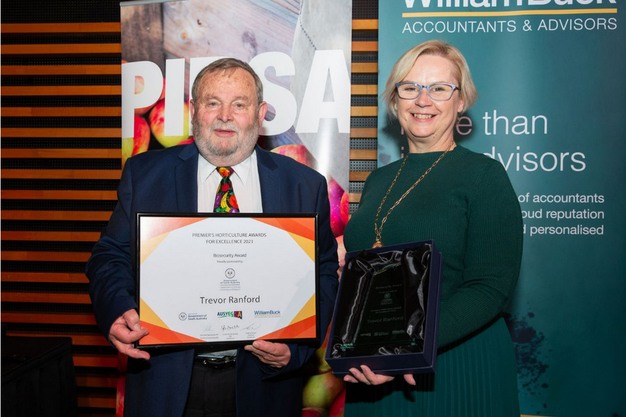Australian primary producers are facing an annual $50 million tax if the Biosecurity Protection Levy is supported by the Australian Parliament. Trevor Ranford, recipient of the 2022 Australian Biosecurity Award – Industry, is calling on the Prime Minister to 'dump' this insidious burden on Australian farmers.

Ranford said 'while the proposal is being called a 'levy' the reality is this is a tax on farming businesses of all shapes and sizes. "All primary producers have been paying their share for Australian biosecurity for the past 26 years, since the Plant Health Australia and Animal Health Australia organisations were formed. This new tax is nothing more than 'double dipping' by the government to try and improve their budget bottom line," Mr Ranford said.
"The 'bio' tax is a real kick in the guts for the hard-working primary producers of Australia."
"These businesses have invested in dealing with biosecurity as part of their day-to-day routine – managing endemic and exotic pests and diseases, on-farm surveillance, on-farm biosecurity and much more."
In 2022/23 the plant industry alone contributed $12.5 million towards Australian biosecurity, and that did not include other contributions to research, development and extension or the in-kind contributions by growers in terms of on-farm biosecurity. In addition, the 'affected plant industries' are contributing 20% to Varroa mite control .
Mr Ranford has assisted Australian horticultural industries over the past 46 years as either an employee or as an independent consultant and he says that he has never seen Australian primary producers in such bad shape.
"We are seeing large numbers of growers walking away and the primary production sector has some of the highest levels of suicide. Our farmers are contending with high costs of production, high costs of living for primary producer families, high electricity costs, a retail sector out of control, increased levels of legislation and regulations in relation to labour and industrial relations, water buy-backs in the Murray Darling Basin, increased incidences of exotic pests and diseases and now the straw that will break the camel's back – a $50 million annual biosecurity tax."
"Any benefits of the third stage tax proposal will quickly disappear as growers will pass on the $50 million tax impost through the supply chain resulting in the increasing upward cost spiral of food continuing for Australian households," said Ranford.
"This 'millstone' around the necks of Australian primary producers must be removed by the Prime Minister if the government is serious about its stated goal of an industry worth $100 million by 2030," concludes Ranford.
For more Information:
Trevor Ranford
Tel: +64 0417 809 172
E-mail: sahort@bigpond.com
